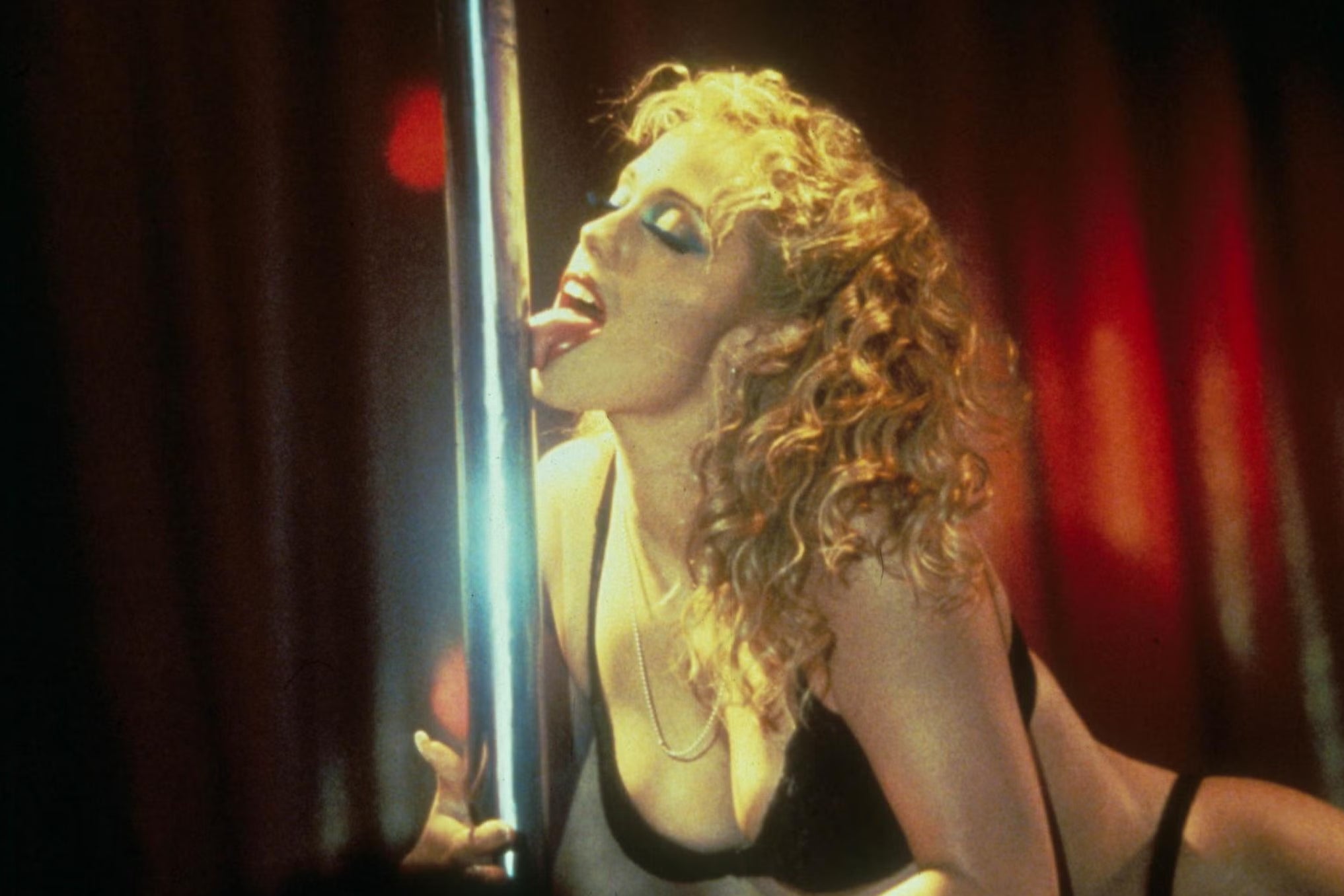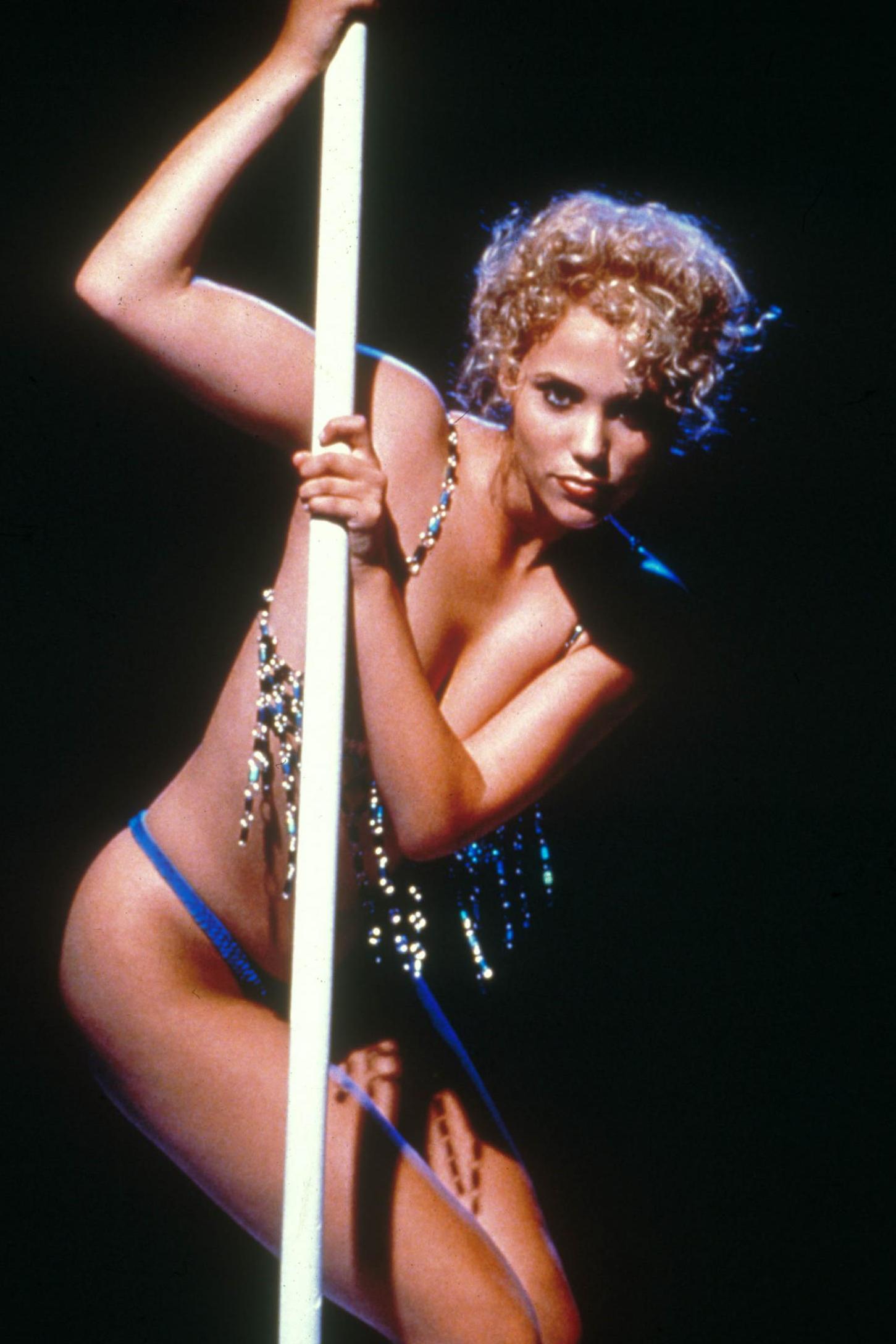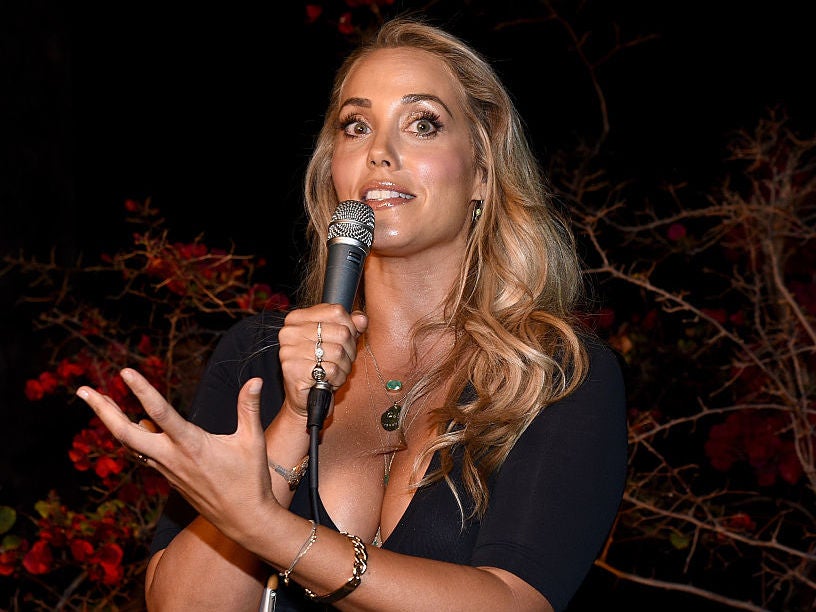The Independent's journalism is supported by our readers. When you purchase through links on our site, we may earn commission.
Showgirls: The remarkable resurrection of the worst movie ever made
A critical and commercial disaster in 1995, ‘Showgirls’ killed careers and ruined reputations, but a new documentary celebrates its extraordinary road to redemption, writes Adam White


Your support helps us to tell the story
From reproductive rights to climate change to Big Tech, The Independent is on the ground when the story is developing. Whether it's investigating the financials of Elon Musk's pro-Trump PAC or producing our latest documentary, 'The A Word', which shines a light on the American women fighting for reproductive rights, we know how important it is to parse out the facts from the messaging.
At such a critical moment in US history, we need reporters on the ground. Your donation allows us to keep sending journalists to speak to both sides of the story.
The Independent is trusted by Americans across the entire political spectrum. And unlike many other quality news outlets, we choose not to lock Americans out of our reporting and analysis with paywalls. We believe quality journalism should be available to everyone, paid for by those who can afford it.
Your support makes all the difference.Showgirls is one of the worst films of all time. It is also a masterpiece. Paul Verhoeven’s surreal, kitsch, glorious disaster has existed at the centre of both extremes since its 1995 release. Much like last year’s Cats, it ventured into places few were brave (or foolish) enough to go, while the vitriol sent its way upon release ensured that no one dared revisit it. It is therefore fascinatingly singular – expensive, bizarre and unflinchingly go-for-broke. It was despised. Millions adore it.
You Don’t Nomi, a new documentary from director Jeffrey McHale, explores that paradox. Much like the fandom that has developed around Showgirls since 1995, it treats the film in question with respect and care instead of abject mockery. There is valid criticism throughout, levelled at the film’s misogyny and exploitative undercurrent, but it also celebrates its visual style, neon palm trees, high camp and creative wildness.
“I knew it was a beautiful film on a technical level, but I think a lot of those things you tend to gloss over when watching it,” McHale says. “Because we’re laughing at it, we’re enjoying it – we’re trying to figure out what everyone was thinking when they made it.”
Showgirls came to screenwriter Joe Eszterhas in a cannabis-induced fever dream. His thin original concept, of exotic dancers living and performing in Las Vegas, was transformed into a tawdry and sprawling epic overnight. He imagined a heroine, Nomi Malone, who would rise from nothing to become the queen of the city’s nightlife. There would be lapdances, rivalries, acrobatic sex in swimming pools and so much nudity that you’d be too embarrassed to even think of ogling. As the screenwriter behind the wildly lucrative Basic Instinct (1992), Eszterhas had carte blanche in Hollywood at the time – he was paid $2m (£1.6m) to write the script, and received a further $1.7m (£1.2m) after MGM bought the rights.
Basic Instinct served as the film’s blueprint. That movie was a runaway smash, a cultural lightning rod that outraged many, took full-frontal nudity mainstream and propelled an unknown actor (Sharon Stone) into the A-list stratosphere. Showgirls, on paper at least, was designed to do the same – only louder, flashier, and with nudity that wouldn’t be missed if you happened to blink. It would also deliberately seek out an NC-17 certificate, meaning under-17s would be barred at the cinema door, and use the subsequent controversy for publicity purposes. Where could it go wrong?
Nomi, as embodied by the former Saved by the Bell actor Elizabeth Berkley, is a tornado of a human. We meet her as an aspiring dancer hitchhiking her way to Vegas from, as she puts it, “different places”. Her lip-liner is bold. She bursts into irrational rages and has sex with everyone she encounters. She can’t pronounce “Versace”, expresses nostalgic joy over once eating dog food for dinner, and is desperate to become the star of Goddess, Vegas’s number one topless dancing revue.

Showgirls quickly transitions from there into All About Eve meets Plan 9 From Outer Space. Nomi tangles with a mentor-slash-lover-slash-rival named Cristal Connors (Gina Gershon), and sleeps with a dastardly businessman (Kyle MacLachlan) to get to the top. There is a gang-rape (which even Eszterhas has, in hindsight, called a mistake), a ubiquitous switchblade and a woman who can bounce objects off her breasts.
Whether Showgirls was intended as a satire has always been a matter of debate, with even its biggest defenders uncertain as to whether such an intent hurts or improves it. It hasn’t helped that many of the figures involved have contradicted themselves through the years. There have been reports that Berkley saw Showgirls as an Oscar vehicle, and treated every scene like her own Ibsen play. Verhoeven has implied that it was meant to be sincere, but has also nodded to its fantastical elements. “It’s about the American dream and looking at it in a pretty dark mirror,” he said in 1995. He has since said that it was always intended to be over-the-top. MacLachlan, meanwhile, assumed while working on it that it’d be “controversial and hard-hitting”, and was surprised that it emerged so camp.
There is something to be said for Showgirls being deliberately outlandish. Like Verhoeven’s directorial follow-up Starship Troopers (1997), the film feels like a European auteur deconstructing American mythology. Whereas Starship Troopers had violence and the US military in its sights, Showgirls could be about the culture of sex in America. It depicts everything sold as titillating by the heterosexual pornography industry – graphic nudity, immediate and volcanic orgasms, ostensibly straight women casually dabbling in lesbianism – and presents it so absurdly, so devoid of illusion or airs, that it becomes almost nightmarish. It could, as You Don’t Nomi also speculates, merely be the product of two very dumb heterosexuals.

Watch Apple TV+ free for 7 days
New subscribers only. £8.99/mo. after free trial. Plan auto-renews until cancelled

Watch Apple TV+ free for 7 days
New subscribers only. £8.99/mo. after free trial. Plan auto-renews until cancelled
“It’s this really strange depiction of female sexuality by two straight men,” McHale says. “I think that’s probably one of the reasons why it’s easy to laugh at it. I don’t think audiences are laughing at Nomi as a character. I think we’re laughing at the depiction of this character by these men.”

Regardless of its intent, Showgirls bombed, grossing less than half its $40m (£33m) budget in cinemas. Critics of the era were merciless, and it racked up a then-record seven Razzie awards, with Verhoeven picking up his award for Worst Director in person. Until last year’s acclaimed Jennifer Lopez vehicle Hustlers, it was subsequently assumed all movies about strippers were cursed – particularly when the Demi Moore comedy Striptease (1996) cratered at the box office, too.
It was Berkley who bore the brunt of the criticism, however. “With the open-mouthed, vacant-eyed look of an inflatable party doll,” wrote the New York Times, “Ms Berkley should have been well suited to a film that treats its heroine like a shiny new toy.” In the wake of the film’s release, she was dropped by her agents and rejected by the same powerful publicists that had courted her repeatedly before anyone had actually set eyes on the film. The Sharon Stone-esque “star is born” scenario everyone had envisaged didn’t happen, and Berkley was made public enemy number one.
Berkley’s performance in Showgirls isn’t good in any traditional sense of the word. It is broad, uncanny and frequently pitched at a level not matching the material. It’s also uniquely brilliant. Actors offered the Nomi role, including Drew Barrymore and a pre-fame Charlize Theron, would likely have been “better” per se, but certainly not right for what Showgirls ended up being. Verhoeven has agreed.
“People have, of course, criticised her for being over-the-top in her performance,” he told Rolling Stone in 2015. “Most of that comes from me. I pushed it in that direction. Good or not good, I was the one who asked her to exaggerate everything – every move – because that was the element of style that I thought would work for the movie.”
Berkley fled to Europe once her press commitments were completed, and spent years living the film down. If she had wished to never be asked about Saved by the Bell again, Showgirls offered up a monkey’s paw – the apparent horror of Showgirls dominated every future interview. She would call up and censure critics who would mention it in reviews of her otherwise well-received Broadway performances, and it would take years for her to embrace it.
“She has a relationship to the film like nobody else,” McHale explains. “Her career kind of… I hate to use the word derailed, because she still works, she still has a career. But when you look at the way that everyone talked about her – the critics and the reviews, it was just awful. It was her first film role out of Saved by the Bell, while Gina Gershon and Kyle MacLachlan had other roles that they could fall back on. I think she does get unfair treatment over it.”
Soon after its release, Showgirls found a devoted audience in the gay community. In early 1996, the New York Times reported that venues were screening the film to sold-out crowds of gay men, drag queens and lesbians, all cheering at the screen and quoting the film’s turgid dialogue.
“The script must have been written by a drag queen and everyone was acting out the film as a drag queen,” one loyal fan told the paper. “For the downtown Manhattan crowd to sit through a movie for two hours and 10 minutes, and enjoy and participate in it, is an indication it does have staying power. These queens don’t tolerate mediocrity.”
It’s also been speculated that Showgirls’s queer fanbase ended up making it a smash. Its release on VHS and, later, DVD helped Showgirls gross at least $100m (£82m) in total. MGM cashed in on the infamy, re-releasing the film and directly promoting the movie as something so-bad-it’s-masterful. For years, it was MGM’s most profitable home-video release, and it continues to draw crowds of supporters whenever it is screened at revival cinemas.
McHale suggests Showgirls’s queer appeal runs particularly deep, and far deeper than merely the arch dialogue, MacLachlan dropping trou, or Gershon chewing the scenery while blowing the fresh paint on her nails. It would have to, since the teasing sapphic chemistry between Nomi and Cristal never goes beyond a particularly sloppy kiss during the film’s nonsensical climax. Rather, Berkley embodies an eternal underdog, a woman vilified and harangued by puritanical critics, while Nomi’s personal journey bears familiarities to those of many young queer people.
“She goes to the big city, finds a family, and she uses her strength, knowledge and sexuality to achieve her dreams,” McHale explains. “I think that’s something so uniquely queer. She’s a fighter. She fights to be seen, she fights to be heard, she fights to perform. I think that women and gay men understand that fight.”
He continues, “It is absolutely a queer film, even though it wasn’t intended for us, I don’t think. It’s a huge, big budget film that was rejected by the mainstream and we took it and we embraced it. We kept it alive.”

In You Don’t Nomi’s most emotional scene, we see footage of an emotional Berkley making a surprise cameo at a Los Angeles screening of Showgirls to celebrate its 20th anniversary. The crowd goes wild.
“I had the most extraordinary experience making the film,” Berkley says to an awed audience. “When a dream is happening, it’s unlike anything you can ever imagine. Which is why when the movie came out, it was more painful than anything you can imagine.
“1995 was such a different time, where taking risks like that were not embraced. They were laughed at. They were shamed publicly. To be a young girl in the centre of that was something that was quite difficult. But I found my own resilience and my power and my confidence – not only through what I had to find out, but because of you guys.”
It’s the ending both Showgirls and its star whole-heartedly deserved.
You Don’t Nomi will be released later this year.
Join our commenting forum
Join thought-provoking conversations, follow other Independent readers and see their replies
Comments